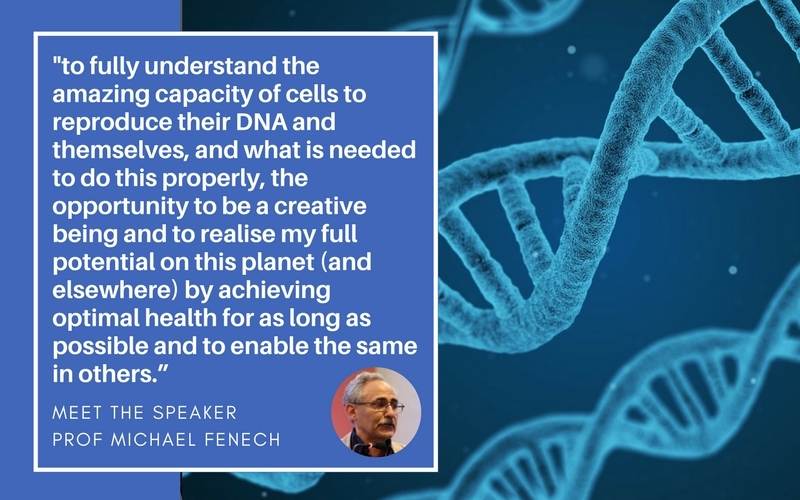
Meet the speaker: Prof Michael Fenech
In the lead up to Lifestyle Medicine 2018, we will be giving you the chance to get to know our speakers, their passion and their work in our ‘Meet the Speakers’ series.
Professor Michael Fenech has had an illustrious career as a world renowned investigator of how nutrition can impact our genome. We are so fortunate to have Professor Fenech join us at Lifestyle Medicine 2018.
We asked him about his visions, motivations and interests, and here is what he said:
My vision of a functional and effective health care system is one “focused on prevention through all life stages and on personalised prevention”.
I feel the biggest potentials in the field are:
- “Understanding the causes of DNA damage and abnormal gene expression at the individual level.
- Practical personalised preventative programs based on genetic and epigenetic susceptibility.
- Personalised supplemention and dietary patterns.”
If a genie granted me a wish (applicable to health care), I would implement “widespread education about the amazing genetic material we have inherited, the fragility of this genetic inheritance and the tools [of] how to take care of it. I would also implement personalised diets for cancer growth control and dementia prevention.”
My motivation comes from the drive “to fully understand the amazing capacity of cells to reproduce their DNA and themselves, and what is needed to do this properly, the opportunity to be a creative being and to realise my full potential on this planet (and elsewhere) by achieving optimal health for as long as possible and to enable the same in others.”
“I shall spend my uninterrupted free time to educate, research, translate nutrigenomics and nutrigenetics into practice, and to daydream!”
We are fortunate to have Professor Fenech joining us at Lifestyle Medicine 2018.
More from Professor Michael Fenech
Can’t wait until the conference to hear about nutritional genomics? You don’t have to! Settle in tonight and enjoy five-hours of free lectures from Professor Fenech at John Hopkins’ Bloomberg School of Population Health here.



